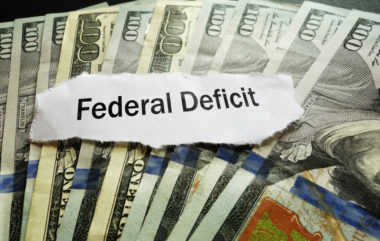Generations are a funny thing. Many people ascribe to their generational group, but not everyone in that group acts or thinks the same. Everyone is unique, has their own experiences and challenges, and can relate to other generations’ worries and concerns.
Baby Boomers might not have had the internet during their early 20’s, but many of them can still relate with the Millennial’s struggle to find a solid job. Gen Xers can relate to the fear of retirement that many Baby Boomers have. Generational names are simply that: names. They do not define people, but they make it easier for marketers to single out groups of individuals. However, in reality, we are all just people existing in the same place, during the same time, but all with unique experiences that have shaped our understanding of the world.
And so it is that the newest generation — currently referred to as Generation Z — is beginning to join the working world. But their experiences are far different from many of the previous generations’. They were very young during the recession and 2008 stock market crash, and they were all born after the release of the internet. They might not know a world without technology at their hands. They do, however, have the stories and advice of their parents. How will that shape their approach to adulthood?
How will the next generation fair in the financial world? Will they take the advice of their parents when it comes to accruing debt and building credit, or will they be more care-free with their financial decisions? What might we expect to see from Generation Z?
“Do As I Say, Not As I Do”
Although Gen Z is just now starting to branch out into the adult and working world, many of them don’t have to look far for financial advice. Their parents, or even grandparents, might still be struggling through the economy, and Gen Z can easily observe the financial struggles of others. As Forbes Magazine wrote: “Obviously, Gen Z’ers are seeing their parents and even grandparents struggling, getting laid off, and not able to retire with enough security. Their future will also include financial obstacles. They have to deal with staggering student debt, competitive job markets, rising home values, and the potential for escalating interest rates. Have they become complacent with this devastating news? No.”
As Forbes Magazine later describes, Gen Zers can easily turn to their parents for financial advice, and many of them do. According to a recent survey by Lincoln Financial Group — the 2016 Measuring Optimism, Outlook, and Direction (M.O.O.D) of America survey — 66 percent of Gen Zers turn to their parents for financial advice, and around 89 percent of respondents have a positive outlook on their financial future.
The survey also revealed some positive news: many of them are tackling savings early. In fact, almost half of Gen Z already have a savings account opened with a bank. Additionally, the average age for Gen Zers to discuss and research financial planning is 13 years old. That is a very early age, all things considered, but it is also a serious indicator of the times. They’ve watched their parents and grandparents struggle enough, but they are not going to let that happen to themselves. They will take their parent’s advice, but they certainly won’t follow in their footsteps.
The Beginnings of a Financial History
Now, Generation Z is starting to join the financial and working world. Some of them have their first jobs, while others are currently in college, thus collecting their first major debt through student loans. Overall, they aren’t big spenders (yet), but they are very financially minded. Most are heavily concerned with the cost of education, but also (much like the millennials) are willing to make the sacrifice so as to improve their job prospects.
And it is very possible that the Generation Z group was born into the right time. Our economy is improving, and our job market is ever growing. Individuals who are fluent in technology are in high demand, and the entire generation is well adapted to the modern age. It could be that Generation Z will be the next Baby Boomer success: brought into a booming economy from the get-go. Hopefully, however, Generation Z will not make the same mistakes as the Boomers when it comes to retirement.
As for credit history, this generation is doing amazingly well. Despite the fact that they have less than ten years of credit history under their belt, the generation has a overall credit score of 631 according to Experian; only 3 points below the millennial generation’s average score. They also only have a fraction of the debt millennials have: $14,446 for Gen Z versus $32,689 for millennials that responded to the Experian survey. Apparently, their early investment in understanding finances is paying off well. For more on credit scores, visit our credit score learning center.
So what’s in store for their future? Will Generation Z be more pragmatic towards debt — utilizing it to their advantage when they need to, but not living outside their means — or will they grow to avoid it all together? Will they start investing soon, or did the 2008 crash their parents always talked about make them distrustful of the stock market?
Whatever happens, it’s going to be an interesting future with Generation Z. By 2020, they are supposed to make up almost 40% of the working population in the United States. They will become just as influential as the millennials are today, and possibly more so. Their credit scores could very well be the best of the four current generations; if they continue to be smart about their money.
Pragmatic, educated, and influential are some of the best words you can ascribe to this new generation. Only time will tell if the kids will be alright, but right now it sure looks like they’re faring just fine. Way to go, kids.





